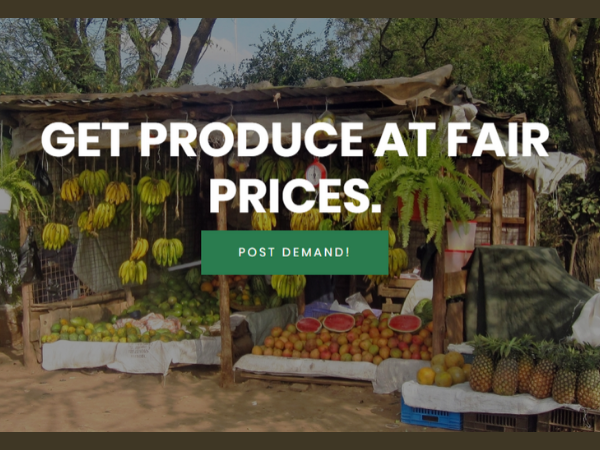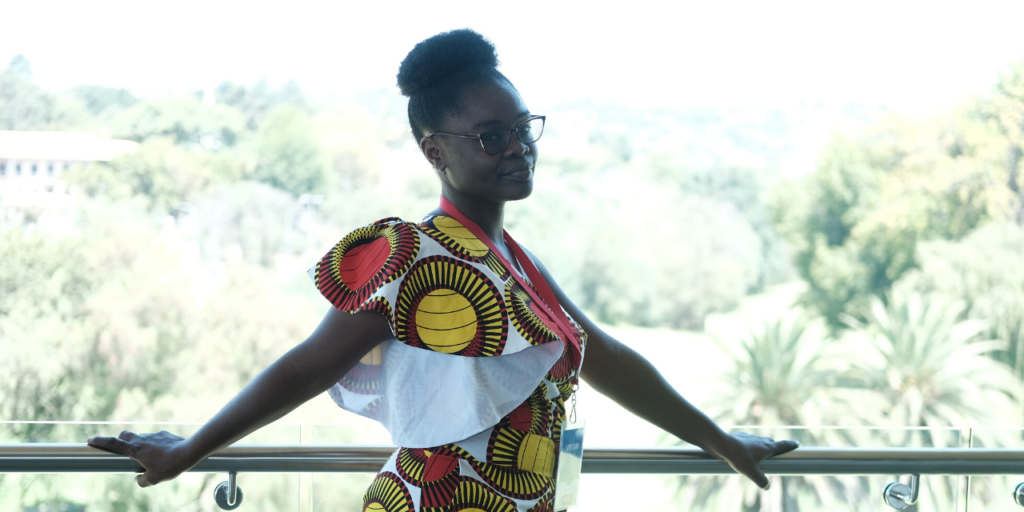Farmula: Farm to fork, how this company connects you to fresh produce.

Farmula: Farm to fork, how this company connects you to fresh produce.
Fresh food is key to the total well-being of the human body and if that is so, accessibility to naturally grown fresh produce is as important as its consumption.
We caught up with Vivian, the founder of the Farmula, an agricultural technology company.
- What is your motivation behind Farmula?
Back in 2015, I tried my hand at farming and alongside my partners, we lost $3000 we had invested in the production of French beans for the export market. This was mainly as a result of the end product not being of the desired quality. We later found out the agronomist we had employed had been buying substandard input and pocketing the rest of the funds meant for input buying.
This experience coupled with the daily price volatility I experience as an end consumer of fresh produce prompted me to think there has to be a better way.
Thus, together with my co-founders, we set out to use technology to predict practices across the agricultural supply chain and enable precision agriculture. We do this with the aim of providing quality and price transparency in the process saving on the billions of dollars that are lost annually after being invested blindly across the agricultural supply chain.
- What challenges did you face starting Farmula?
When we started, the main challenge we faced was having more demand than supply. This is because we were very keen on being demand-driven thus, we started by getting demand before we got farmers on board.
The other challenge we faced was retaining customers and this was because in the beginning we were just offering potatoes on our platforms and customers would revert back to going to open-air markets and source potatoes as they sourced other produce they needed.
- Are you still facing the problems, if not, what problems are you currently facing?
Currently, we are not experiencing these challenges as much, we have settled on partnering with aggregators on the ground who do all the sourcing for us. Also, we have added to the number of products we offer on our platform and currently offer tomatoes, onions, greens, and potatoes.
The problem we are currently facing is getting relevant partners who will enable us to scale and have more people across Kenya and Nigeria using our platform.

- How long have you been doing this?
In February 2019 I got with my current team and started working on the idea of using technology in the agriculture space. In November 2019 we launched in Nairobi Kenya. Thus, I have been in the agricultural space for 5 years now and my team and I have been working on Farmula for 1 year 3 months now.
- What is the future you see for agriculture in Africa?
The future I see for agriculture in Africa is precision. I see the use of Drone technology and Machine Learning models in enabling precise agricultural practices.
From predicting produce quality before harvest to predicting yield and matching supply-demand. The result of this will be cutting down food waste drastically and saving on billions of dollars that are lost annually due to being invested blindly across the agricultural supply chain.
- How does the company work?
As co-founders, we are fortunate to have specialized skills that facilitate our execution in different areas in the company. As the CEO I am in charge of coming up with strategies and overseeing execution. Our COO is currently leading operations in Nigeria and also ensures the team is working cohesively. The CTO currently develops our software and the CPO interacts with customers then relays to the team how best we should iterate our product.
We all contribute towards customer acquisition and give ideas on product development upon receiving feedback from our current users. This has enabled us to have a bit of structure. Lastly, we work alongside six aggregators who ensure we have a constant supply of produce.
- Do you vet farmers?
When we started, we were working with farmers we knew and had developed trust with over the years. Currently, we vet aggregators who work closely with hundreds of farmers they know and trust.
Eventually, we plan on employing technological tools that would allow for quantity and quality prediction before harvest and remote quantity and quality check upon harvest. This will enable us to scale in areas where our aggregators don’t have the reach and eventually penetrate the export market where quality assurance is key.
- How many farmers do you currently work with?
Currently, we work with 6 aggregators who work with over 300 farmers.
- What motivated you to open your Lagos business?
One of our co-founders is from Nigeria and whenever he would post on social media about our company he would get requests from Nigeria from people wanting to use our platforms. This made us settle on launching a pilot in Lagos and that is how we opened up there.
- Why are you empowering farmers and connecting us to fresh food?
The main reason for empowering farmers is so as to bring the power back to farmers. Across the agricultural supply chain, farmers invest the most but end up earning the least. By using technology we will encourage farmers to practice precision agriculture. This will be through availing them information on what crops to plant, in what quantity, and during which seasons so as to get the most profit.
Also, we shall enable them to know which pesticides to spray and on which areas so as to save on their spend on input.
Lastly, upon harvest, we automatically help them price their products and give them direct access to the market in turn helping them earn up to 20% more.
For buyers, we connect them to fresh food because we see them want access to safe food conveniently and affordably. We are able to do this by providing traceability of product quality and price from farm to fork.
- How do you fund the company?
Currently, we have seed funding that we are using to run operations.
- Can you share with us your funding experience?
Farmula was one of the 2019 start-ups that were funded by the Meltwater Entrepreneurial School of Technology (MEST). Briefly, MEST runs a year-long fully sponsored Pan-African entrepreneurial training program. At MEST is where my cofounders and I met, went through the program, and started working on Farmula as an idea. Upon graduation, we pitched to an experienced board of investors and received $100,000 in funding.
- Are you doing this full time?
Yes. I am currently working on Farmula full-time.
- Is the company paying salaries and how many employees do you have?
We have six employees we work with and no, as co-founders we are not yet taking salaries.
- How many farmers do you currently work with?
Currently, we work with six aggregators who work with over 300 farmers.
- What are your goals
My personal goal is to merge hardware and software and develop impactful solutions. While my company goal is to facilitate precision agriculture. In my current position, I am able to work towards both by using hardware and software technologies to enable precision agriculture.
- What tools, software, and other technological processes do you use?
We use;
- USSD service – Enable customers to view product prices and place orders
- Machine Learning predictive model – Predict produce prices
- Image recognition – Remote quality check
- WhatsApp Bot – Placing orders
- Mpesa – Mobile payments
- How does the delivery process work?
The customer dials our USSD code places an order and pays 20% down payment via mobile money
Our dashboard aggregates these orders and sends them to our contact on the ground via SMS notification by Thursday every week.
Once the product is packed, the logistics partner is notified.
The logistics partner picks up the product and delivers it to our buyers who pay the remaining 80% upon delivery.
- Do you have any regrets considering you trained as an engineer?
None. I trained as an engineer, software developer, and data scientist, and currently, the skills I gained in these fields are coming to play.
The vision for Farmula is to become a full software solution where we predict practices across the agricultural supply chain and enable precision agriculture. This requires the use of drone technology and developing machine learning models which are all skills I gained from my engineering, software development, and data science training